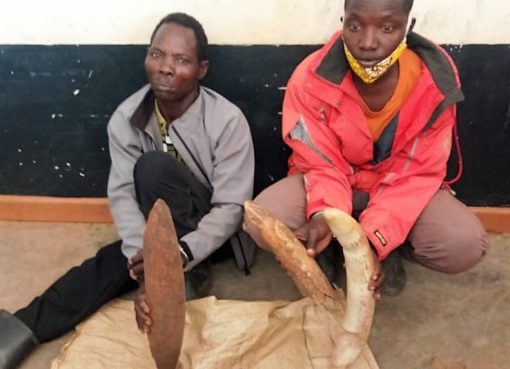Up to 10,000 small holder coffee farmers in the Gusii region are poised to benefit from a training on crop diversification to maximize crop production in the highly populated area through a project dubbed Gusii Regenerative Agriculture Landscape (GuRAL).
The project which is supported by an international non-profit organization, Rainforest Alliance, has undertaken a three-day training of trainers exercise to equip a section of the farmers with knowledge and skills on how to improve production and maximize profits.
Speaking at the end of the training at Nyamache Coffee Farmers’ Cooperative society, in Nyamache town, Nyamache Sub County, GuRALProject Manager Peter Okong’o said the training on regenerative agriculture aims to create healthy and productive farms, to restore
fragile ecosystems and boost farmer incomes in the area.
Okong’o decried poor performance of the Coffee crop in Kisii and Nyamira Counties, and urged the farmers to upscale and cascade the skills to other farmers.
Applauding the President’s call to set aside a national tree planting day, Okong’o urged the farmers to plant trees that can blend well with the coffee.
He noted that the Presidential directive coincided well with the activities of the alliance which included training farmers the importance of planting grevillea trees in the coffee farms.
The farmers’ training has also been carried out in Marani, Kiomoncha, Nyanchogu and Namakoma among other areas in the County.
Okong’o said their advocacy to preserve the environment was to ensure there was biodiversity to enrich the soil for regenerative agriculture and offer firewood to farmers.
He said the training empowered the farmers with information and skills on coffee farming geared towards better yields and profits by improving quality of the crop.
He appealed to farmers to also plant variety of crops under the coffee trees, like beans, vegetables and indigenous trees which promote environmental conservation by utilizing minimum water.
Okong’o discouraged farmers from blending their crops with eucalyptus trees or other water guzzlers saying they are not environmental friendly.
According to Okong’o, one acre of land can be able to accommodate 1000 coffee seedlings and grevillea trees at intervals of 10 meters from each other.
He encouraged the farmers to also plant fruits trees like bananas and avocados to cover risks from loss precipitated by harsh weather, disease outbreak and lack of market.
This, he said, increases diverse income earning opportunities to cushion the farmers from severe losses during crop failure.
He said Rainforest Alliance had procured 3,000 Avocado seedlings especially Hass variety which is high yielding.
One farmer, Christopher Nyabuto said the three days training had equipped them with good agricultural practices and pledged to be a good ambassador.
He appealed to the Alliance to offer more assistance claiming Nyamache had more coffee cover compared to other areas in the county.
Eunice Moraa from Suguta in Nyamache applauded the Alliance for the training saying improved productivity will enable the farmers meet their daily needs including paying school fees for their children and clothing among others.
Rainforest Alliance is an international non-profit organization that works to restore the balance between people and nature for both to thrive in harmony.
The Alliance partners with small holder farmers and local supply chain actors to create healthy and productive farms by restoring ecosystems in a bid to boost farmer incomes.
Rainforest Alliance had earlier noted a decline in Kenyan coffee production by 50 percent over the last 25 years, stagnating at around 40,000 metric tons per year.
Various factors that have led to the decline include climate change, unsustainable water use, ageing coffee trees, soil degradation and inability by many cooperatives to support members with essential services like, soil analysis, training and financial credit among others.
By Jane Naitore




